On October 30, 2025, the college of International Students successfully held a lecture titled Tips for learning Chinese language. The lecture was delivered by Lecturer Ms. Wang Shanshan and attracted many international students.
First, Ms. Wang recommended a series of practical Chinese�learning apps such as Duolingo and Pleco. She then addressed common issues that beginners face with characters, listening, and speaking, offering advice for each. Learning Chinese characters is a major difficulty for most international students. Although writing characters is no longer a mandatory requirement nowadays due to the extensive use of mobile and computer, Ms. Wang emphasized that repeatedly writing characters is the only way to truly recognize them. She also suggested studying characters with a partner using flashcards, as collaborative review is more efficient than studying alone.
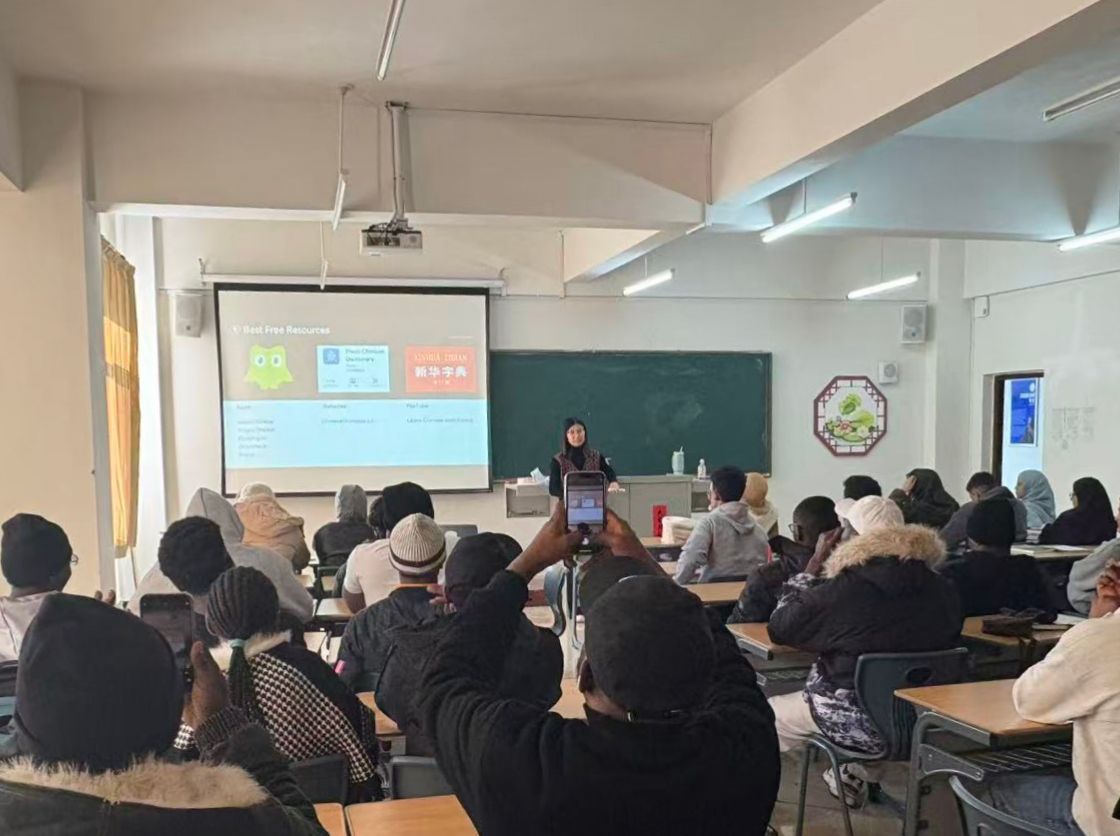
Listening is another area where beginners often struggle. Ms. Wang noted that for students at an elementary level, sentence�by�sentence dictation helps learners identify parts they cannot hear clearly or understand, so dictation exercises in listening classes should be taken seriously, and any unclear points should be asked about promptly.
Speaking is the skill that beginners care about most. Ms. Wang pointed out that some native Chinese speakers have accents, speak dialects, or speak very fast, so it is normal for learners who have studied Chinese for a while to still find it difficult to communicate with Chinese people. However, this does not mean they should give up chatting with Chinese speakers. The first step is to achieve accurate pronunciation, especially paying attention to tones. Then they should try talking to themselves; self�talk helps them discover words they don’t know or are unsure about how to pronounce. After they can “talk to themselves” fluently, they should look for opportunities to converse with native Chinese speakers.
Four outstanding students were then invited to share their own tips. Susan Orahii Sedondu from Nigeria said, studying only in the class isn’t enough, so we need to review after class and learn extra words if you need.
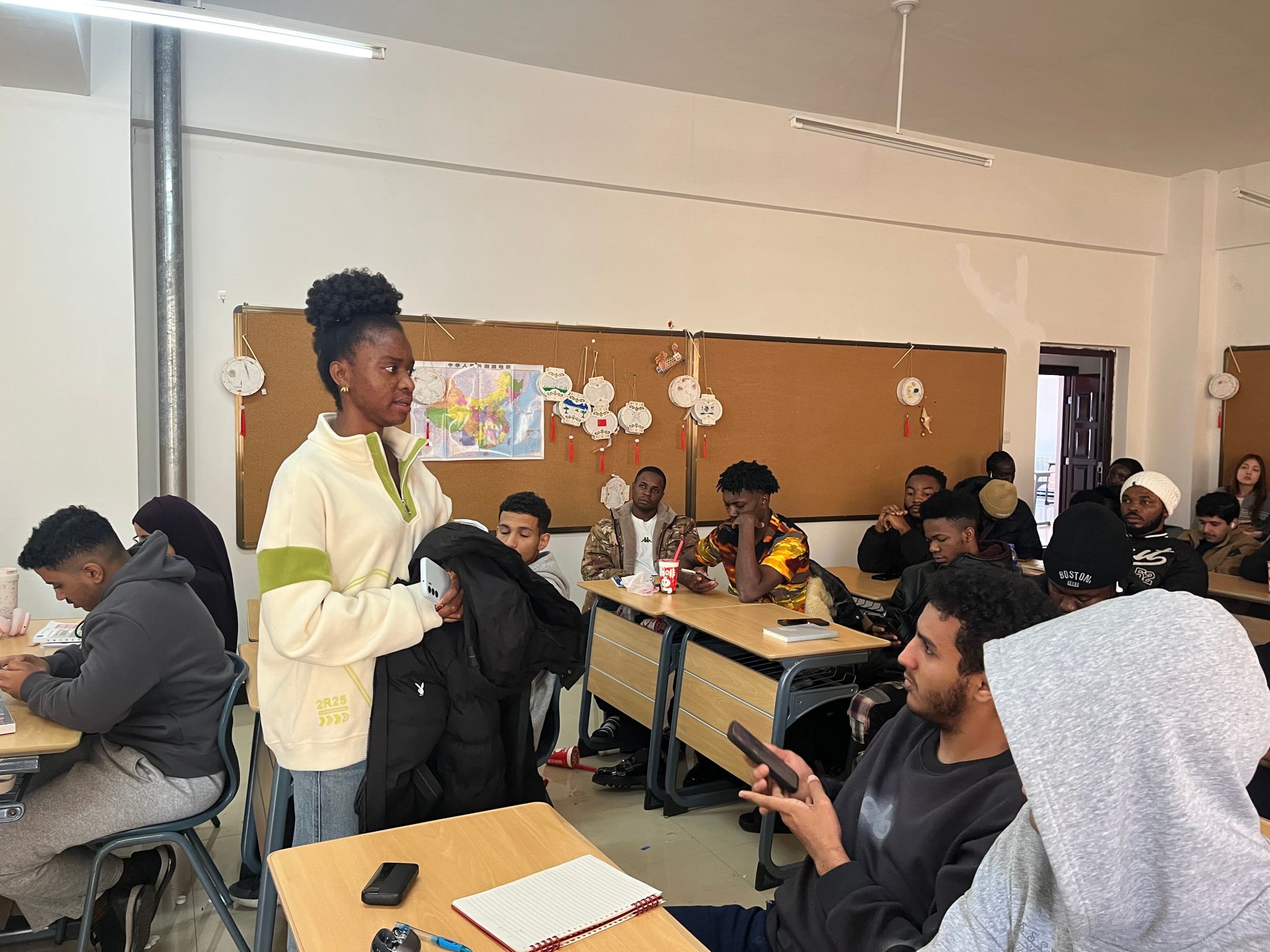
Yvonne Mutasa from Zimbabwe mentioned that we learners should know our motivation of learning Chinese. Do we would love to further study in China? Or we learn Chinese for knowing Chinese friends? Let your goal guide you to improve Chinese。
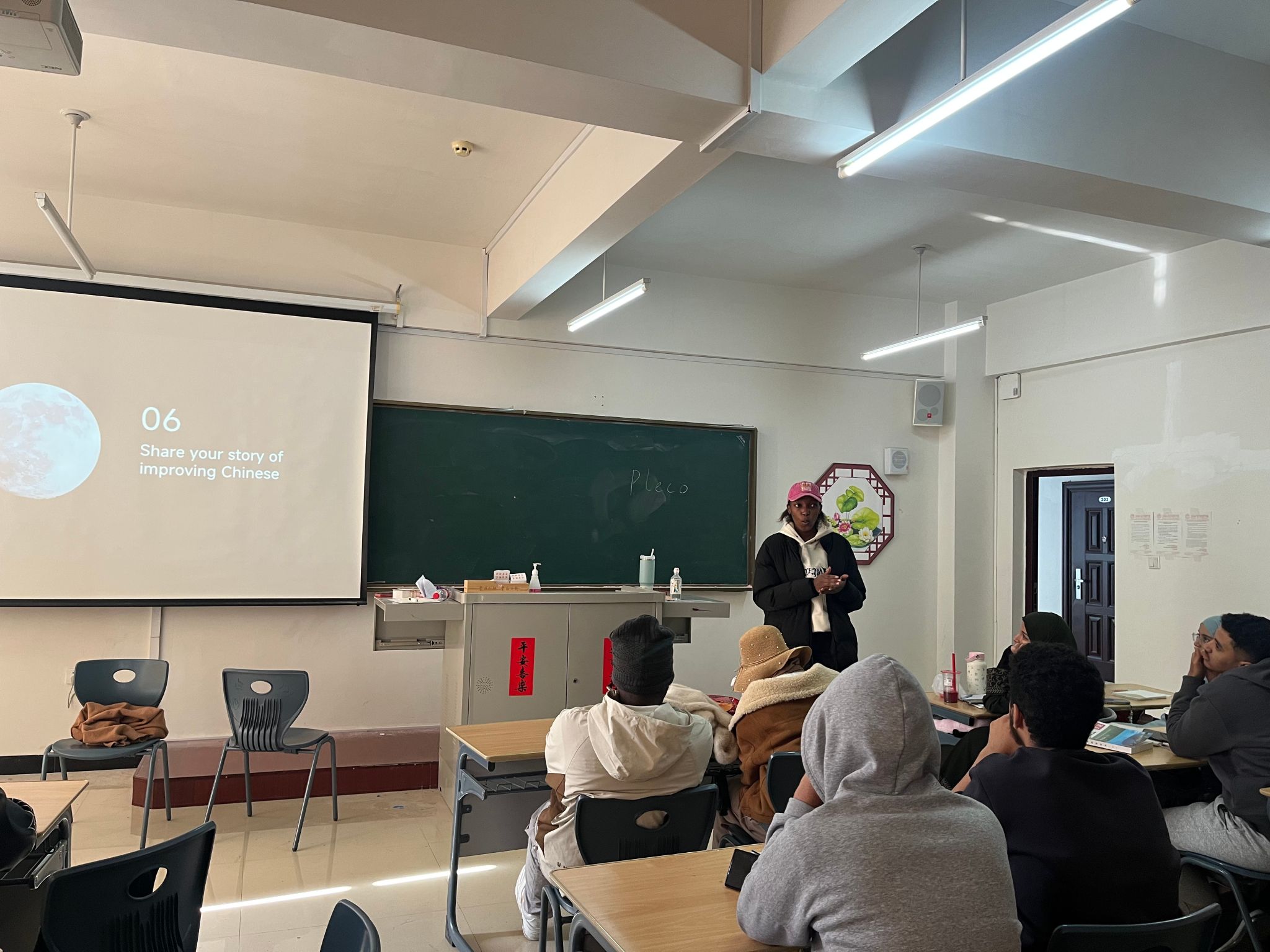
Abdulmajeed Abdulazeez Muhammad from Nigeria told the participants that vocabulary of Chinese language enables you to chat with Chinese. Therefore, we should use our spare time to expand our vocabulary. At the same time, to improve fluency, we need to observe how Chinese people speak and imitate them—first imitate, then we can articulate better.
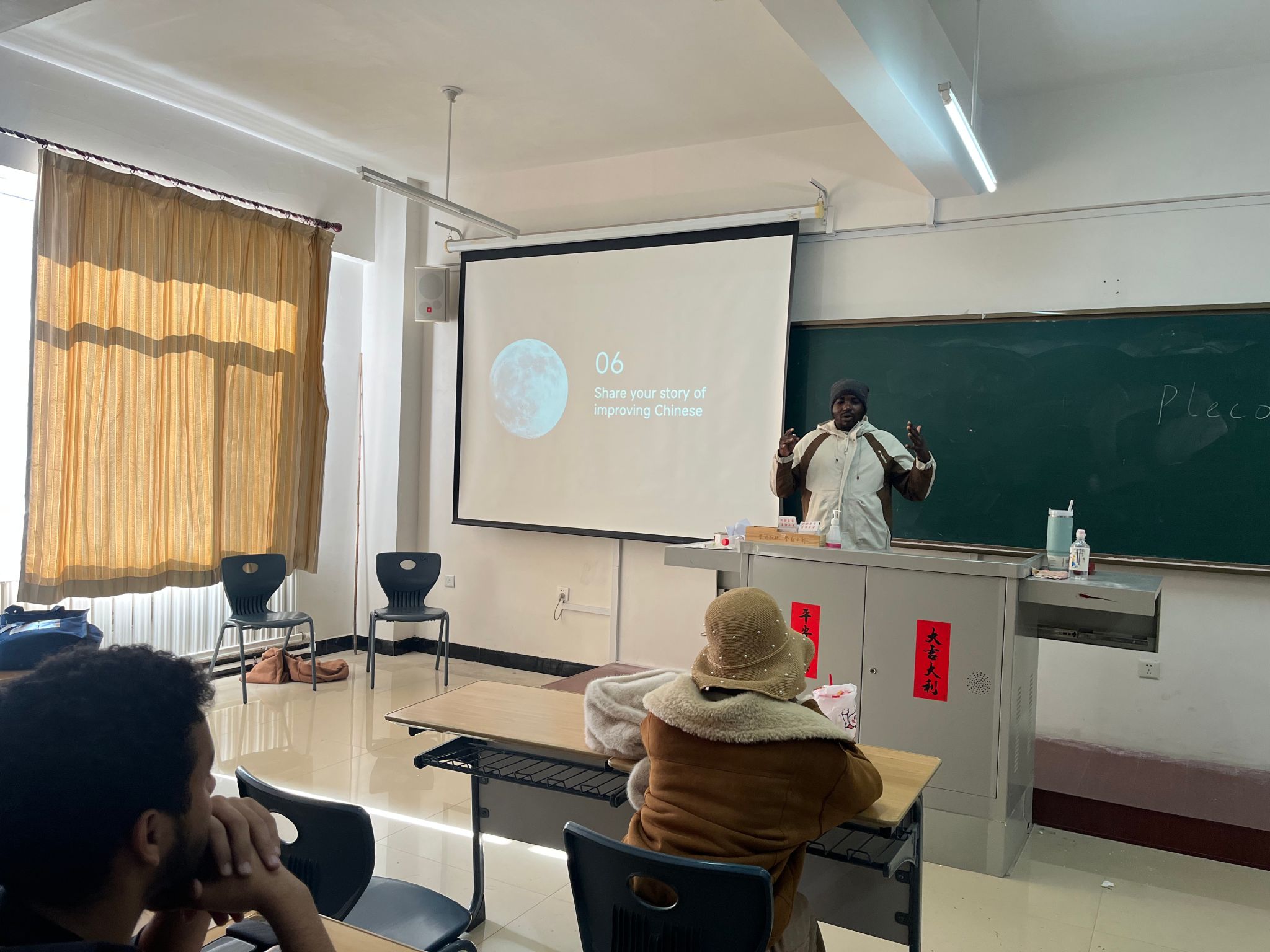
Thomson Seviyon Whesu from Nigeria said, learning Chinese can be fun. By watching Chinese short videos, we can improve our listening skills and even learn some phrases that you’ll never find in textbooks.”
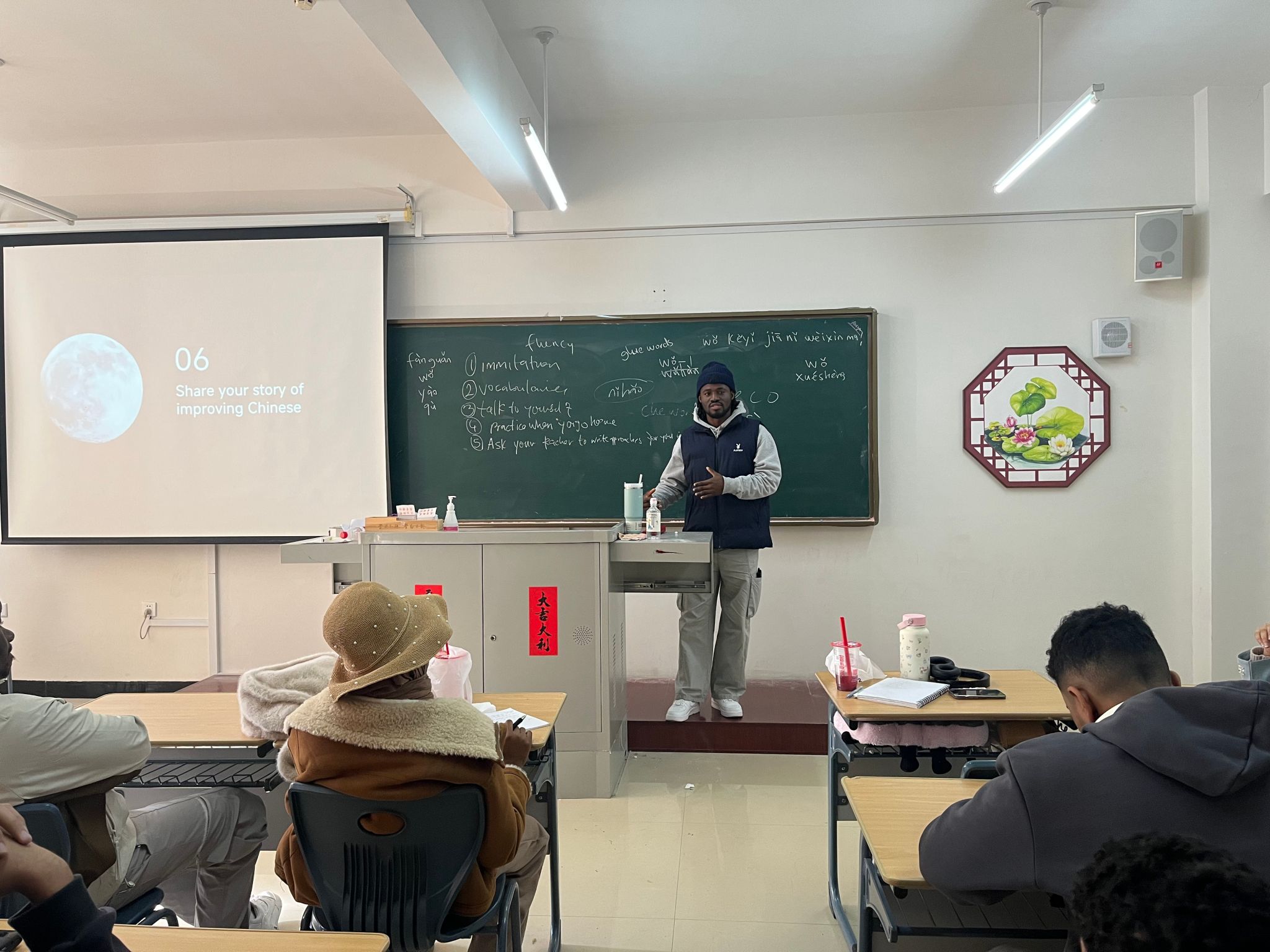
The lecture was rich in content and highly practical. Students said that through this lecture they found learning methods and resources that better suit them. The college of International Students will continue to hold such lectures to provide more learning support and assistance for international students.
